Barcelona was an economic powerhouse in the 19th Century, and it had a lot of money for building. At the turn of the century, while Europe was in the midst of the Art Nouveau movement, the Catalan architects in Barcelona decided to take off in their own direction. Antoni Gaudi is the best known of those architects, and his work literally transformed Barcelona, adding private mansions, public parks, street lamps and a massive cathedral that was begun in the 1890s and is still being built (estimated date of completion: 2040). Some of the buildings resemble the Art Nouveau buildings in Brussels and elsewhere -- Gaudi shared the affinity for natural forms and a union of beauty and function that characterized the Art Nouveau aesthetic. But he also incorporated gothic, moorish and other elements into his work, as well as fantastical shapes and colors that seem more akin to the Austrian expressionism of the mid-20th Century than the rest of 19th and early 20th century architecture. I had seen pictures of Gaudi's buildings and wanted to see them in person. They were amazing -- better in life than in pictures.
Palau Guell
This mansion is an early work; it doesn't have as many of the fantastical elements as Gaudi's later work.
La Pedrera
I liked this building particularly well. The undulating lines and quasi-floral balcony railings are most reminiscent of the Art Nouveau style, but Gaudi's exploded the carefulness of that style into something more wild.
Casa Batllo
Only a block from our hotel, this house was the most outlandish that we saw. It evokes a dragon (see the roof) and skeleton-like masks (see the balconies). Very cool at night.
La Sagrada Familia
This cathedral is Gaudi's masterpiece and Barcelona's crown jewel. It's a massive church; when it's finished it will be the tallest in the world. As noted above, construction began in the 1890s and won't be finished for another 30 years or so (fingers crossed). I expected it to be strange, a modernist curiosity more a testament to man's creativity than a reflection on religion; I did not expect it to be stunningly beautiful or to present a thoughtful take on Christian theology -- yet it was and it did. It's one of the most remarkable modern interiors I've ever seen. I definitely hope to come back when it's finished.
Palau Guell
This mansion is an early work; it doesn't have as many of the fantastical elements as Gaudi's later work.
La Pedrera
I liked this building particularly well. The undulating lines and quasi-floral balcony railings are most reminiscent of the Art Nouveau style, but Gaudi's exploded the carefulness of that style into something more wild.
Casa Batllo
Only a block from our hotel, this house was the most outlandish that we saw. It evokes a dragon (see the roof) and skeleton-like masks (see the balconies). Very cool at night.
La Sagrada Familia
This cathedral is Gaudi's masterpiece and Barcelona's crown jewel. It's a massive church; when it's finished it will be the tallest in the world. As noted above, construction began in the 1890s and won't be finished for another 30 years or so (fingers crossed). I expected it to be strange, a modernist curiosity more a testament to man's creativity than a reflection on religion; I did not expect it to be stunningly beautiful or to present a thoughtful take on Christian theology -- yet it was and it did. It's one of the most remarkable modern interiors I've ever seen. I definitely hope to come back when it's finished.
 |
| The Passion Facade |
 |
| The pillars are meant to evoke a forest of trees with the vaulted ceiling as a canopy of leaves |
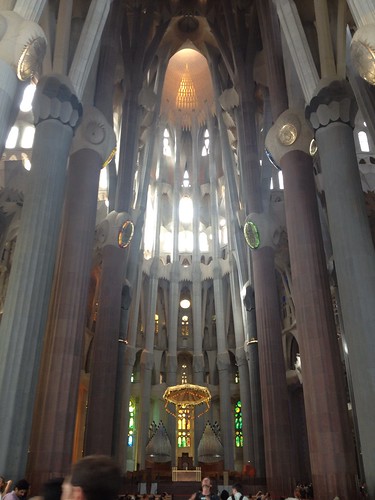 |
| Eventually all the windows will be filled with stained glass for a dark, reflective space |
 |
| Given the vibrancy of these existing windows, I can't wait to see the finished building |
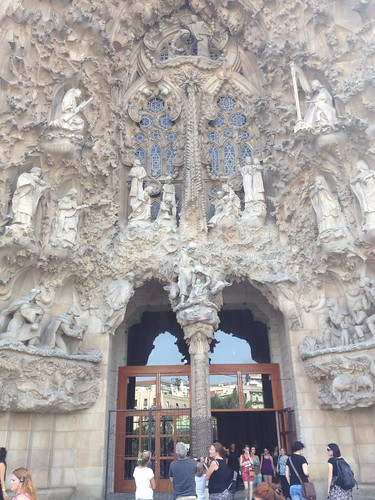 |
| The Nativity Facade |
 |
| Detail of Nativity Facade |



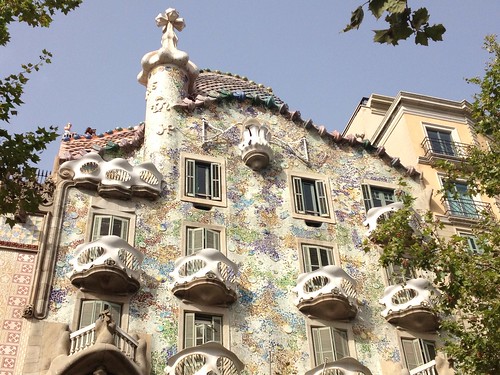
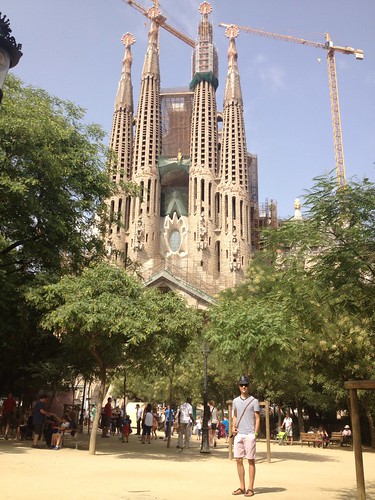

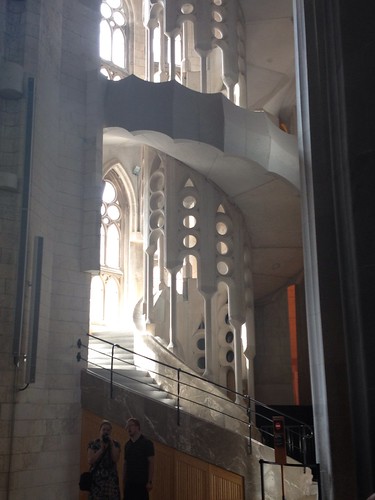
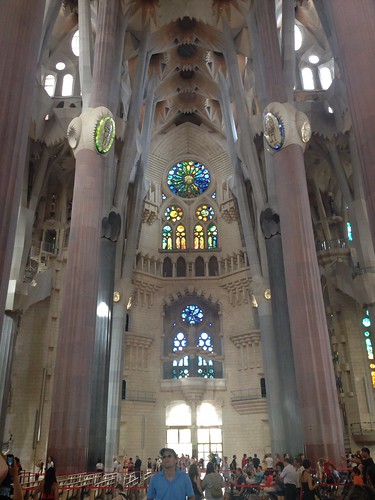
No comments:
Post a Comment